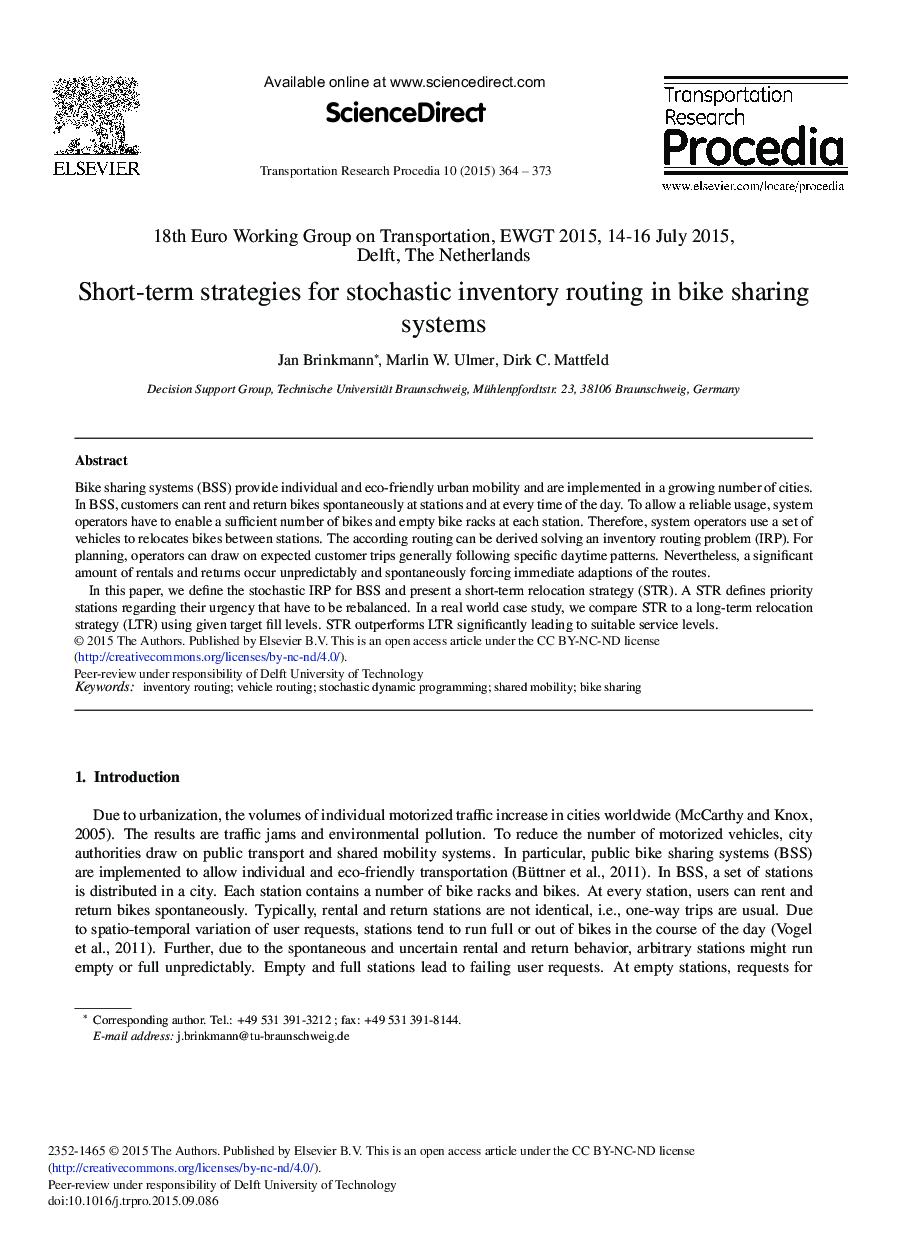| Article ID | Journal | Published Year | Pages | File Type |
|---|---|---|---|---|
| 1106846 | Transportation Research Procedia | 2015 | 10 Pages |
Bike sharing systems (BSS) provide individual and eco-friendly urban mobility and are implemented in a growing number of cities. In BSS, customers can rent and return bikes spontaneously at stations and at every time of the day. To allow a reliable usage, system operators have to enable a sufficient number of bikes and empty bike racks at each station. Therefore, system operators use a set of vehicles to relocates bikes between stations. The according routing can be derived solving an inventory routing problem (IRP). For planning, operators can draw on expected customer trips generally following specific daytime patterns. Nevertheless, a significant amount of rentals and returns occur unpredictably and spontaneously forcing immediate adaptions of the routes.In this paper, we define the stochastic IRP for BSS and present a short-term relocation strategy (STR). A STR defines priority stations regarding their urgency that have to be rebalanced. In a real world case study, we compare STR to a long-term relocation strategy (LTR) using given target fill levels. STR outperforms LTR significantly leading to suitable service levels.
